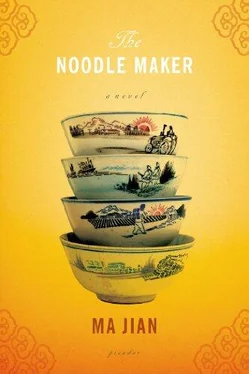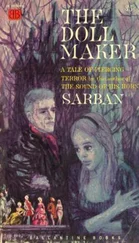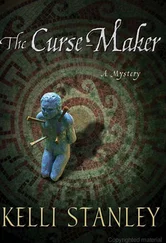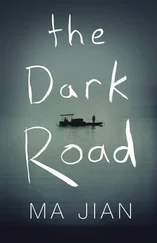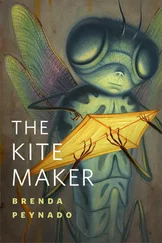One night, Old Hep was leaning over his copy of Selected Writings from Modern Western Literature and about to doze off when his wife returned home from a party. He looked up and in the dim light saw, to his horror, a pair of hands with long red nails. He was terrified. At the time he felt the fear was more than his fragile body could stand. She looked down at him serenely, then glanced at her hands and said, ‘It’s nail varnish, you fool. Don’t tell me you’ve never seen nail varnish before!’
‘Blood-stained hands!’ The hairs on the back of his neck were standing on end.
‘Nail varnish!’ she snapped angrily. ‘All the foreign actresses in the glossy magazines have red nails. Haven’t you seen?’
The image of blood-stained hands slowly retreated from his mind. It didn’t worry him that he had never seen, or heard of, anyone painting their nails before. He knew he was incapable of keeping up with the pace of change. Trying to make up to her he asked: ‘And why do they paint them red?’ His voice sounded frail and sad.
‘To make their hands look pretty, you idiot!’ The novelist was angry. She could not tolerate this man who was frightened by her lipstick and nail varnish. She vowed never again to discuss modern cosmetic products with him.
Soon afterwards, she bought herself a pair of shoes with kitten heels, and started wearing her hair loose. Then she progressed to wearing stilettos, smoking foreign cigarettes, discussing Hemingway, drinking beer, spraying perfume on her neck, and celebrating her birthdays with a cake and candles. She boarded the Open Door Policy’s express train, and soon she had read every translation of Milan Kundera’s books, equipped her home with running hot water, a door bell, a telephone line, and arranged decorative ornaments and toys behind the glass front of her new bookcase. She was a fully-fledged modern woman. But it was a full decade later before Old Hep finally got round to reading The Catcher in the Rye and One Hundred Years of Solitude, watching a pornographic video, taking a mistress and buying a Western suit.
Since his wife was so much more at home with the climate of reform, he always ended up feeling excluded. The female novelist took him to parties, but Old Hep was conscious that he was short and unattractive and lacked any sense of rhythm. So when the disco music started, he would tremble with fear and retreat into the corner, staring miserably at the men and women cavorting before him. His wife even started meddling with his magazine. She turned up at his office to check manuscripts and commission pieces, and he would have to bow to her decisions. At home, she was the only one who received visitors. Her friends would drop in to engage her in literary discussions. As he listened in from the kitchen, Old Hep would hear them spout streams of unfamiliar terms such as ‘linguistic weight’, ‘spherical structure’, ‘fragmentary style’.
On their third wedding anniversary, his wife’s name entered The Great Dictionary of Chinese Writers , and he knew that from then on, he would have to assume the role of clown. That night, his wife invited a crowd of young admirers to the flat to celebrate her good fortune. A long-haired youth dragged Old Hep out of the kitchen and demanded to hear his opinion on some issue or other. Old Hep stood in the centre of the room, lost for words. He looked up through the forest of guests, and saw his wife’s face redden with rage. In a panic he said, ‘Ask my wife. She’s much more intelligent than me.’ The guests laughed. He heard his wife whisper to him, ‘What kind of man are you?’ He had never heard her speak so softly to him before.
He shuffled back into the kitchen, humiliated and depressed. The guests roared with laughter. He hung his head low and arranged a few cabbage leaves around a plate of shredded tofu. He knew that if he had walked off towards the toilet instead of the kitchen, he would have made a more honourable exit, and exposed himself to less abuse from his wife once the guests had left.
He soon gave up all hope for a happy future and began to seek refuge in his daydreams. Whenever his wife rebuked him, he escaped into his fantasy world. After she entered the dictionary, it seemed to him that she had grown taller by half a head.
When she reached her forties, the female novelist’s face, which had depended on youth for its appeal, suddenly took on the long gourd-like shape of her father’s. Looking at it straight on, one could see through the make-up that the skin covering the more frequently-used facial muscles was now loose and wrinkled. But her body was still firm — a result of the confident posture she had adopted after being awarded Party membership at the age of eighteen. Her heavy bones and broad shoulders were clearly inherited from her military father.
Her temper grew worse with age. Whenever Old Hep did something to annoy her, she would twist his arm behind his back, flay her hand in the air like a kung-fu actress and kick him in the shins. His ignorance of cultural matters became the focus of her anger, and she was horrified when he finally admitted to being baffled by the new genre of ‘Misty Poetry’. At the dinner table, he would hear his wife and her young guests discuss ‘structuralism’, ‘low-flying aircraft narrative’ and ‘sickroom mentality’, terms he couldn’t find in the dictionary. Before he discovered that he was capable of taking mistresses, all he could do was listen respectfully and stare at his wife as she held forth.
When the beer and foreign nicotine reached her bloodstream, her speech and facial expressions became more animated. Feeling crushed by the vibrant tone of her voice, he would often seek comfort from a daydream. He could divide his dreams into separate parts like a string of sausages, cutting off in between one scene and the next to fetch a plate of radishes from the kitchen or to pour out more tea for the guests. As long as his wife didn’t shout for his attention, his dream could continue episode after episode.
As his status in the home sank lower and lower, he realised that only in the kitchen could he feel free and act as he pleased. He could hurl bottles of rice vinegar on the floor without having to ask for their permission; he could slam his cleaver onto the chopping board whether there was meat lying on it or not. He could even kill things on this board. Transforming living creatures into dead creatures became his favourite pastime. When he gazed down at a chicken he had just beheaded struggling feebly in his hands, the troubles that plagued him in the outside world vanished from his mind. The instant the living animal became a dead corpse, he would scream a torrent of obscenities. One day, he pressed a live carp onto his board, thrashed his cleaver down and shouted ‘Stinking hag!’ as the head fell onto the cement floor.
Before he knew he was capable of taking mistresses, the only way he could escape his wife’s control was to sink into a daydream. When he lay down in bed beside her, giving her one of the face massages outlined in her copy of A Learner’s Guide to Cosmetic Massage, he would calm his mind with a dream about purple dustbins. It was a dream he indulged in quite regularly, and that seemed to alter slightly each time he had it. To find the dustbin, he had to travel a hundred metres in space-time, turn four corners, skirt a wall caked in flaking white ash, weave down an alley dotted with heaps of charcoal briquettes, pass a beer stall, a children’s bookstore, two private restaurants, a shop selling burial clothes (a shiver always ran down his spine when he saw the mural showing dead corpses rising to heaven in a swoon), until he at last reached the purple dustbins at the back of the bicycle parking lot. Sometimes he would see his father pop out from one of the bins, remove his glasses, and peer at him with a sneaky look in his eyes. He knew that in thirty years’ time, he would look identical to this man, only without the glasses.
Читать дальше
